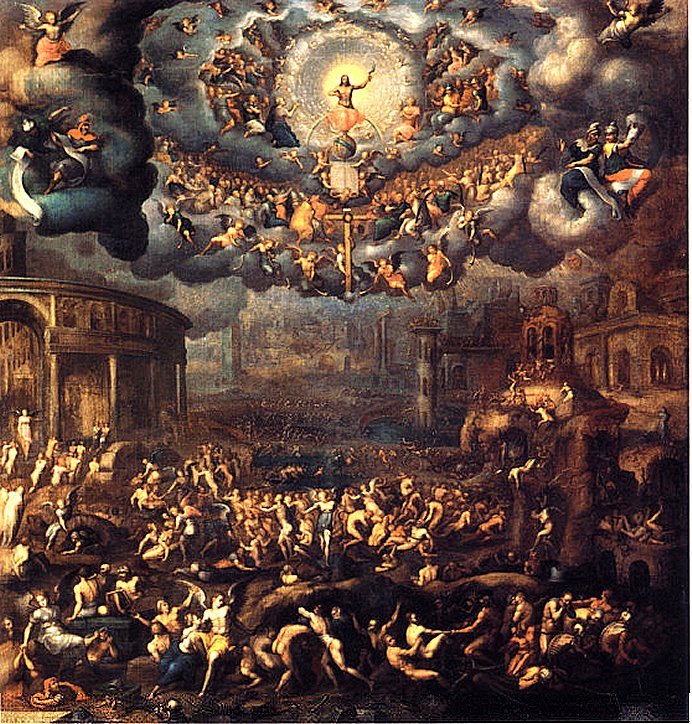On this Third Sunday of Advent, the readings start with a portion of the Book of Isaiah. The backstory of this part of the book conjures up ideas of exile. Many of the people in Jerusalem had been deported to Babylon. In today’s reading, God speaks oracles through his prophet Isaiah. They are oracles of an extraordinary promise and beauty: the glory of the Lord is coming.
Hence, the desert will bloom with flowers. The land will have “the glory of Lebanon,” a reference to the wonderful cedar forests for which Lebanon was known. This gives us a picture of the coming glory of God making everything burst into a rich, thick, new life. In fact, this is what happens when God “comes to save you.” We will never fully grasp the wonder of God saving his rebellious creation – we are part of that rebellion – and bringing it to the full level of life that He intended.
Among other things, salvation will involve visible changes “the eyes of the blind being opened, the ears of the deaf will be cleared,” and so on. These are tangible signs that symbolize the invisible changes taking place in our spiritual senses, as the eyes and ears of our souls open up to God. Physical healing is part of the coming salvation. But there are other positive signs too: the exiles “will return and enter Zion singing, crowned with everlasting joy; they will meet with joy and gladness, sorrow and mourning will flee.” We will be like this as we enter Heaven.
The psalm adds even more detail of the wonders to come: God “secures justice for the oppressed, gives food to the hungry. The Lord sets captives free.” Always the thrust is towards each and every person being elevated to a full and complete life in a new world that is just and sustains every good thing, where strangers are kept safe, “the fatherless and the widows” are cared for. Such people will no longer be merely the most vulnerable in society.
Glorious as all this is, and much as we long for its coming, the Letter of James then warns us to be patient just as “the farmer waits for the precious fruit of the earth, being patient with it.” In other words, right now, we are on the edge of God’s great project. We are in it and, at the same time, it has not yet been fully realized. So, we are waiting. Waiting does the most amazing things to our consciousness. It focusses us on what is happening, and we look for signs of what we are hoping for. It helps us decide what is important and what is not.

James says: “Make your hearts firm, because the coming of the Lord is at hand.” We are not just waiting for something, we are waiting for the Lord. Firm hearts have decided for the Lord no matter what. This is personal. At the second coming of the Lord, someone whom we already know is coming to greet us. This is the second time that the Lord will come. Advent is a time when we get our life-trajectory in order.
Advent wakes us up once again to the joy and peace that the birth of the Lord brought into the world. Jesus the Lord stayed with us through his Body the Church in this world through time. The Church is the community, the only one, that will introduce us to Jesus and the new life that he brings.
But Advent not only looks back. It also looks forward to the Second Coming when I am expected to be ready to welcome him. This takes skills such as looking forward. It takes patience as James reminds us. He also says: “Take as an example of hardship and patience, brothers and sisters, the prophets who spoke in the name of the Lord.”
Then Matthew’s Gospel speaks of the prophet John the Baptist who was greater even than the prophets because he was God’s messenger who explained what the Coming of the Lord means. The word that he used most often was “repent.” He knew that the Lord’s coming was not a social call. The first coming of the Lord was so that we could get to know him personally. The Church is where this happens and this relationship is deepened.
Just how personal is this relationship? Well, St. Thomas More, just before his execution, wrote a prayer: “O God grant me the ardent desire to be near you; not to be free from the miseries of this world, not to escape from the flames of Purgatory and Hell, not even to attain and enjoy Heavenly bliss, nor for my own profit, but simply and solely for love of you.”
As we develop this sort of love, we need not fear the Second Coming, even though, like St. Thomas, we still have to strive and to hope that we love enough!
*Image: Last Judgment by Jean Cousin the Younger, 1585 [Museé du Louvre, Paris]















